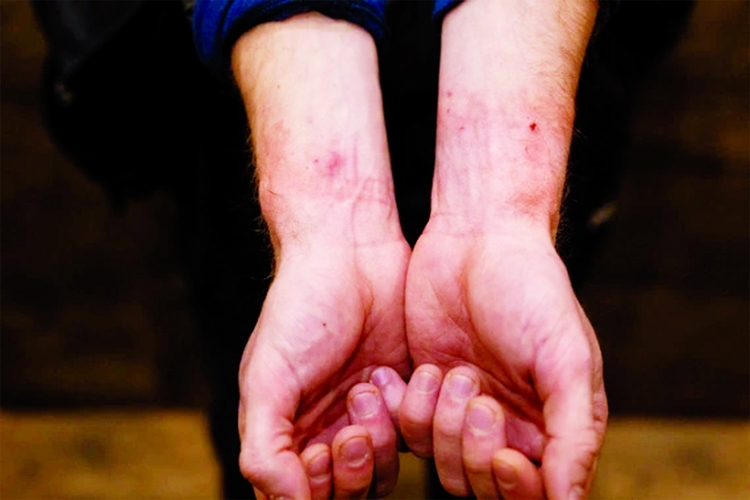
Al Jazeera :
On Tuesday, three photojournalists went on their usual journey around villages near the Polish-Belarusian border to take photos of the escalating migration crisis.
Under a state of emergency, Poland bans reporters and aid workers from the 3km (2 miles)-wide border zone, where dozens of asylum seekers who manage to cross from Belarus hide from Polish guards.
So those like Maciej Moskwa and Maciej Nabrdalik, two Polish photo reporters, and Martin Divisek, their Czech colleague, have been covering the story from where they have access.
About 4pm local time, the reporters approached a military camp located in Wiejki, a village. They left their car and informed guards that they are journalists.
“Good evening, we’re here at work. We know that you are too. We’re allowed to take photographs here. Even if you turn your back to us,” one of the journalists can be heard in a recording from the scene, obtained by Al Jazeera. “We don’t want to mess with you, but we need to know what the situation is and we know we have the right to take pictures here. Please respect that because we respect your work.”
The guards did not know that one of the journalists had a recording device that was switched on, just in case.
The guards asked the journalists to wait, but sensing that the situation was getting tense, the three reporters asked if they were being detained. The answer was “no.” They returned to their car and wanted to leave to avoid trouble, but chaos erupted.
“Get out of the car! Get out of the car, now!” an unidentified uniformed man shouted in Polish. “You’re getting out now, for sake, you have a minute!”
One of the photojournalists could be heard repeating that they were journalists, but the plea was ignored. The guard forced them out of the car. The journalists were ordered to stand separately, take off their jackets and put their arms above their heads.
“They didn’t give us any reason for taking off our clothes,” Moskwa told Al Jazeera. “It was very brutal and we felt threatened, armed people lined up behind us. They completely restricted our options to move. When I turned my head back to see what’s happening with my colleagues, I heard that I can only look straight or down.”
“After some time, we got handcuffed. I started feeling pain in my wrist and had to put my arms up behind my back to improve blood circulation. I asked the officer to loosen the handcuffs a bit, but he didn’t do that. At the time, the officers went through all our journalistic materials on our cameras and tried to check messages on our phones. This is illegal, it is contravention of powers.”
The recording obtained by Al Jazeera confirms this version of events. The incident comes a week after Al Jazeera reported on the growing concerns among rights groups and journalists regarding the ban. Critics have said the restrictions are “arbitrary and disproportionate”, and called for measures to allow the media to report near the border for the sake of transparency.
Regarding the incident, the Ministry of Defence said in a statement: “The soldiers reported that on Tuesday afternoon, soldiers stationing in a camp in the town of Wiejki saw three masked men photographing the camp and soldiers … These persons walked along the camp, had white masks on their faces and hoods on their heads, they did not have any outside signs identifying them as journalists.
“The car also did not bear any signs that it belongs to journalists. When asked to stop photographing, the men went back to their car and tried to leave. In the meantime, relevant authorities, including the police, were called. The soldiers received an order to detain these persons until a relevant body clarifies the situation. The persons presented documents confirming their identity but showed their press cards only after some time.”

